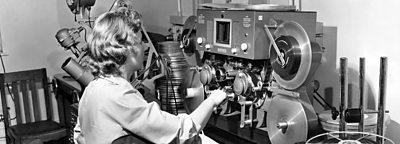2022 marks 100 years of the ÃÛÑ¿´«Ã½, and in the run up to the anniversary, ÃÛÑ¿´«Ã½ History will be searching ÃÛÑ¿´«Ã½ Archives to find the real story of the Corporation, as told by its staff. These un-edited interviews held for use in news programmes and other ÃÛÑ¿´«Ã½ output, forms our oral history collection, and will build over the years to become the 100 Voices that made the ÃÛÑ¿´«Ã½.
In this collection Frank Gillard and John Lane ask the questions.
-

John Snagge OBE
Radio announcer and television commentator John Snagge became one of the definitive voices of the ÃÛÑ¿´«Ã½, particularly during World War II. -
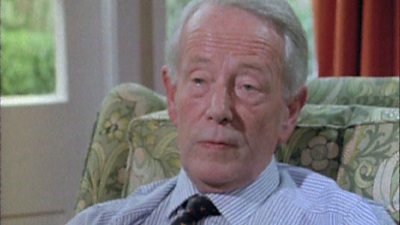
Sir James Redmond
Pioneer of early television, Engineer Sir James Redmond explores why Alexandra Palace was an ideal location. -
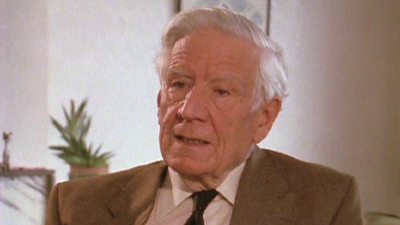
Sir Francis McLean
Former Director of ÃÛÑ¿´«Ã½ Engineering, McLean's ÃÛÑ¿´«Ã½ career started much earlier in the 1930s. -

George Campey
George Campey was a Television Publicity Officer and a Press Officer amongst many other senior roles in the ÃÛÑ¿´«Ã½. -
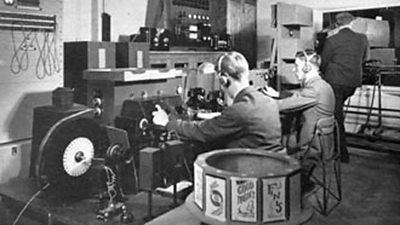
Tony Bridgewater
Tony Bridgewater worked with John Logie Baird in the days before the ÃÛÑ¿´«Ã½ had considered entering into television. -

Val Gielgud
In 1929 Val was appointed Head of Productions and was responsible for all radio drama and also contributed to the development of TV drama. -

Joanna Spicer
Known as ÃÛÑ¿´«Ã½ TV’s foremost television programme planner, it has been said that Joanna Spicer practically ran ÃÛÑ¿´«Ã½ Television single handed. -
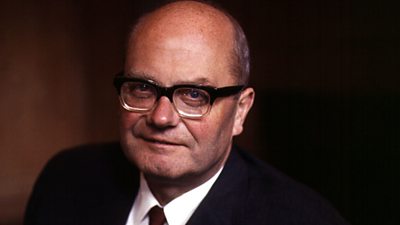
Sir Hugh Carleton Greene
Director-General of the ÃÛÑ¿´«Ã½ from 1960-1969. He is widely acknowledged as a moderniser of the Corporation. -
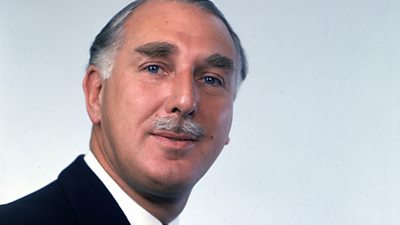
Peter Dimmock
Dimmock recalls the limited hours and means of post war television, and the strained relationship with management in Broadcasting House. -

Donald Baverstock
In his interview with Frank Gillard, recorded in October 1985, Baverstock recalls a career full of excitement, and innovation.
